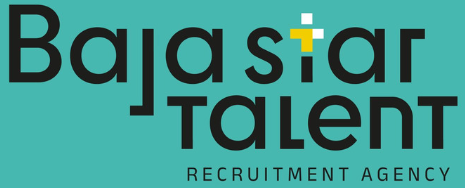While Google requires a certain degree of knowledge for precise searches, Chat GPT promises to provide precise and relevant information.

OpenAI unveiled SearchGPT, a search feature designed to give “timely answers” to questions, drawing from web sources.
UI-wise, SearchGPT isn’t too far off from OpenAI’s chatbot platform ChatGPT. You type in a query, and SearchGPT serves up information and photos from the web along with links to relevant sources, at which point you can ask follow-up questions or explore additional, related searches in a sidebar.
“In an era where information is ubiquitous, finding precise, relevant, and reliable data quickly is paramount”, says ChatGPT itself. “This is where SEARCH GPT, a sophisticated tool built upon the advancements of OpenAI’s Generative Pre-trained Transformer (GPT) technology, comes into play”.
OpenAI explains it in a way that we wo´nt understand until we try it, but Google is working in a counterattack.
Meanwhile, that´s what OpenAI explains about this new product, which aims to end nearly three decades of Google’s dominance.
What is SEARCH GPT?
SEARCH GPT is an advanced information retrieval system that leverages the capabilities of the GPT architecture, specifically designed to enhance search functionalities. Unlike traditional search engines that rely on keyword matching and predefined algorithms, SEARCH GPT employs natural language understanding and generation to provide more contextually accurate and nuanced responses.

Key Features of SEARCH GPT
- Contextual Understanding: SEARCH GPT understands the context behind search queries. It can interpret complex questions and provide answers that are not just keyword-based but are contextually relevant, making the search experience more intuitive and user-friendly.
- Conversational Search: It allows for a more interactive and conversational approach to searching. Users can ask follow-up questions, and SEARCH GPT can maintain the context of the conversation, providing a seamless search experience akin to a human dialogue.
- Enhanced Relevance: By leveraging vast amounts of training data, SEARCH GPT can filter out irrelevant information and prioritize content that is most likely to satisfy the user’s query, improving the overall relevance of search results.
- Multimodal Capabilities: SEARCH GPT isn’t limited to text. It can process and generate content in various forms, including text, images, and potentially other media, making it a versatile tool for different types of queries.
- Continuous Learning: The system can continually learn from new data, refining its search algorithms and improving accuracy over time. This adaptability ensures that SEARCH GPT remains effective as new information and trends emerge.
How SEARCH GPT Works
The core of SEARCH GPT is built on the principles of deep learning and natural language processing (NLP). Here’s a simplified breakdown of its working mechanism:
- Query Understanding: When a user inputs a query, SEARCH GPT first analyzes it to understand the intent and context. This involves parsing the query to identify key elements such as the main topic, specific details, and any implied questions.
- Contextual Processing: It then uses its pretrained models, which have been trained on diverse datasets, to generate a response that is contextually appropriate. This step involves matching the query with relevant information from its knowledge base, considering nuances and subtleties in language.
- Response Generation: Finally, SEARCH GPT constructs a coherent and relevant response. This response generation process not only focuses on accuracy but also ensures that the information is presented in a clear and concise manner.
Applications of SEARCH GPT
SEARCH GPT has a wide range of applications across various domains:
- Academic Research: Providing researchers with precise and comprehensive information quickly.
- Customer Support: Enhancing automated customer service systems by providing accurate and context-aware responses.
- Content Creation: Assisting writers and creators in generating ideas, drafting content, and fact-checking information.
- Healthcare: Helping medical professionals retrieve relevant clinical information and latest research findings.
